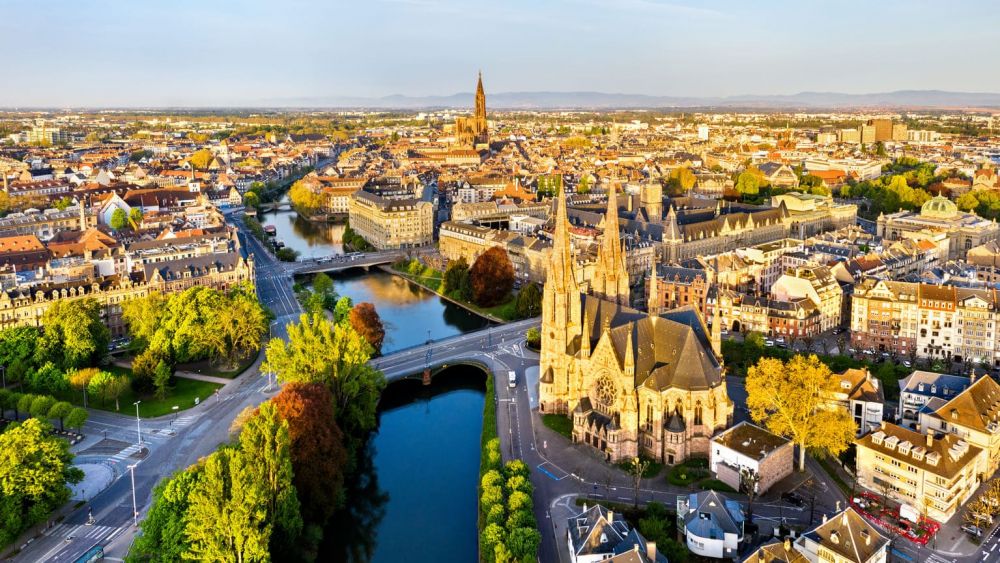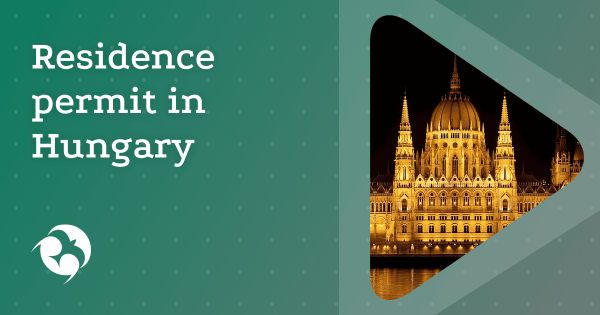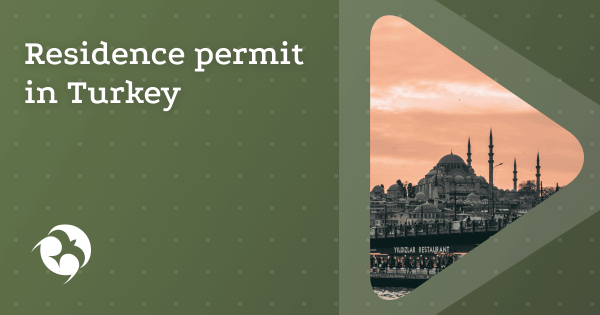France is opening its doors to wealthy foreigners through the visitor visa program. This is an easy way to obtain European residency without investing in the country’s economy.
Obtaining a French residence permit through the status of a financially independent person requires a deep understanding of immigration laws and strict adherence to procedural requirements. Our team specializes in supporting such applications, helping to avoid typical mistakes when applying for French residency. If you are considering obtaining a visitor visa, our team of immigration lawyers is ready to take on all stages. Contact us and the process will become easier and faster.
The visitor visa in France is regulated by Article L313-6 of the Code on the entry and stay of foreigners and the right to asylum. This type of temporary residence permit is created specifically for individuals who can financially support themselves without employment in France.
Who can benefit from the program?
- Financially independent individuals with passive income;
- Retired people with sufficient payments;
- Remote workers (upon signing an obligation not to work in the country).
Benefits of obtaining
- The ability to stay in the Republic 365 days a year without a mandatory minimum stay.
- Free movement throughout all Schengen countries with the right to stay up to 90 days out of 180.
- Unlimited number of border crossings without additional permits.
- The right to obtain a social security number NIR and reimbursement of treatment in public clinics.
- Children of visa holders have the right to study in public schools and universities on an equal basis with French citizens.
- The ability to open accounts, receive loans and make international transfers in European banks.
- Visa holders do not automatically become tax residents.
- Permanent residence and citizenship prospects. After 5 years of residence, the right to apply for permanent residence or citizenship appears.
- Spouses and minor children receive a visa together with the main applicant.
- If necessary, you can change your status to work or entrepreneurial, already being in France.
- No investment in the economy or job creation is required.
Key requirements
The key point remains proof of financial solvency. The official minimum is €1,800 per month per person (the minimum interprofessional wage). An alternative solution is to have savings – from €30,000 per main applicant.
The French immigration system requires proof of a place of residence even before receiving a visa. Applicants must either purchase real estate or sign a lease agreement for at least 12 months. There are no formal requirements for the cost, but the living space cannot be less than 9 m² per person. At the same time, the authorities check the reality of the intentions through the owner’s documents. The landlord will need a passport and a tax return.
Formally, the visitor visa does not set minimum requirements for staying in the country. Owners can stay in the country from one day to 365 days a year. This flexibility becomes the main advantage of the program. To extend the visa, you need to show real ties to France and stay for at least 183 days a year. Applicants for citizenship after 5 years must prove a stay of at least 183 days a year – without this, naturalization becomes impossible.
Immigration with a family
The program provides for the inclusion of a family in the main application. Spouses and children under 18 receive visas at the same time as the main applicant. Children over 18 years of age must submit individual applications, but can use their parents’ documents as supporting documents. Minors who entered France on a family visa do not need a separate residence permit until they reach adulthood.
Costs of processing
The consular fee is 99€ for processing an application for a long-term visa. This amount is the same for all types of VLS-TS visas and does not depend on the country of application.
Once you arrive in France, the second stage of expenses begins. Registration with the OFII (French Office for Immigration and Integration) requires a payment of 200€ per applicant. This fee covers a medical examination and the issuance of an electronic tax stamp (timbre fiscal électronique). In addition, a stamp duty of 25€ is charged.
Minimum financial requirements
The main expense item is demonstrating financial solvency. The official minimum of 1,800€ per month rarely ensures approval of an application. In practice, it is recommended to have 3,000-3,500€ per person to successfully approve the request.
Medical insurance requires coverage of at least €30,000 per person. The cost of an annual policy starts from €800-1000, depending on the age of the applicant and the scope of coverage. Biometric data is provided free of charge at the consulate, but an additional photo session may be required to comply with French standards.
Translations of documents into French are a significant expense. Translation and notarization of a full package of documents may require from €1000. A visa extension, if submitted on time, costs €225. Late submission entails a fine of €180. A medical examination is carried out annually at no extra charge.
Step-by-step application process
- Collection of documents. First, the applicant prepares a personal file: a valid passport, proof of income, a rental or purchase agreement for housing. This step is important, since the consulate strictly checks the reality of financial guarantees and housing.
- Online application for France-Visa. Next, fill out the form on the France-Visa portal, attach scans of documents and pay the consular fee.
- Submitting an application at a visa center or consulate. On the appointed day, the applicant submits the originals of personal documentation and gives biometrics.
- Obtaining a VLS-TS “Visiteur” visa. After approval, a long-term visa stamp is placed in the passport, equivalent to a residence permit for the first year. From this moment, 365 days of legal stay in France begin.
- Registration with OFII. Within 3 months after entry, you must register with OFII: pay the state fee, undergo a medical examination and receive an electronic stamp (timbre fiscal). Otherwise, the visa will be considered invalid.
- Extension and confirmation of status. An application for extension must be submitted no later than 2 months before the visa or residence permit card expires. The resident will again need to demonstrate the required level of income and savings, undergo a medical examination, confirm their place of residence in France and their children’s education in a local school.
If the mandatory procedures seem complicated and confusing to you, our company offers comprehensive services for preparing a dossier and interacting with government agencies. This approach reduces the risk of refusal and saves your time, allowing you to concentrate on preparing for a new life in France.
Risks and how to minimize them
Along with the attractiveness of a visitor visa in France, there are always pitfalls. One of the most common reasons for a negative decision by the consulate are inaccurate or incomplete documents. For example, if the applicant indicates income, but does not support this figure with bank statements or certificates, the chances of refusal immediately increase.
Tax status is a sensitive topic. If you spend less than 183 days in the Republic, you do not formally become a tax resident. However, with a long stay, tax residency can be acquired. Careful planning and consultations with experienced immigration lawyers who know the specifics of the agreements between the Russian Federation and France help to minimize the risk of double taxation.
The experience of our specialists shows that 95% of applications are sent for revision precisely because of incorrectly completed documents. We help to collect a complete, correct dossier, build a consistent financial history and optimize the registration in accordance with the requirements of the migration service. Such an approach reduces the probability of refusal to almost zero and speeds up the receipt of a visa.
Comparison of programs in different countries
The French visitor visa for financially independent persons attracts those who are looking for a quiet life in Europe without the obligations of employment. But how does it compare to similar programs in neighboring countries? Here is a comparison table of the requirements of similar programs.
| Country | Program | Minimum Income | Residence Requirements | Route to Permanent Residence/Citizenship | Family |
| France | VLS-TS Visiteur | 1,800€/month per person; recommended from €3,500 | At least 183 days a year | Permanent residence after 5 years; citizenship after naturalization | Spouse and children under 18 are included in the application |
| Spain | Non-Lucrative Visa | 28,800€ per year for the main applicant | At least 183 days per year | Permanent residence after 5 years; citizenship after 10 years | Includes spouse, children under 18; dependents |
| Italy | Elective Residency Permit | 31,160 €/year per applicant | No official minimum; actual residence required | Permanent residence after 5 years; citizenship after 10 years | Spouse and minor children included |
| Portugal | D7 Passive Income Visa | Passive income €870 monthly + savings of €10,440 | At least 183 days a year or 8 months in 2 years | Permanent residence after 5 years; citizenship after 6 years | Includes spouse, children under 24 and dependents |












